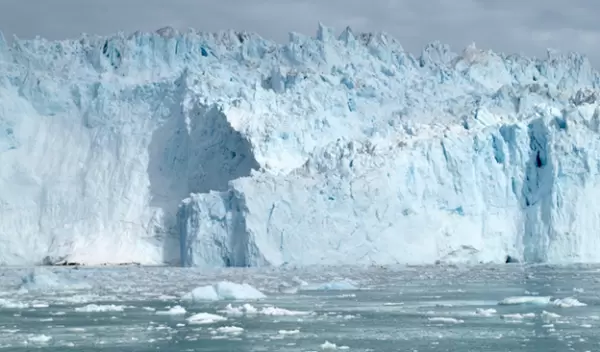
Coastal glacier retreat linked to climate change
More of the world's coastal glaciers are melting faster than ever, but exactly what's triggering the large-scale retreat has been difficult to pin down because of natural fluctuations in the glaciers' surroundings. Now, researchers at The University of Texas at Austin and Georgia Tech have developed a methodology they think cracks the code of why coastal glaciers are retreating, and in turn how much can be attributed to human-caused climate change.
Attributing the human influence on coastal glaciers – which flow directly into the sea – could pave the way to better predictions about sea-level rise. So far, scientists have tested the approach only in computer models using simplified glaciers. They found that even modest global warming caused most glaciers to melt, or retreat.
The next step, the U.S. National Science Foundation-supported researchers said, is for researchers to simulate the coastal glaciers of an actual ice sheet, like Greenland's, which holds enough ice to raise sea level by about 22 feet (7 meters). That will reveal whether the glaciers are retreating due to climate change and help predict when major ice loss might occur.
"The methodology we're proposing is a road map toward making confident statements about what the human role is [in glacial retreats]," said glaciologist John Christian at The University of Texas at Austin and Georgia Tech. "Those statements can then be communicated to the public and policymakers and help in decision-making."
Published in the journal The Cryosphere, the methodology is unique because it treats rapid glacier retreat as an individual probabilistic event, like a wildfire or tropical storm. For a large retreat to happen, the glacier must retreat past its "stability threshold," which is usually a steep rise in the underlying bedrock that helps slow and stabilize its flow.
The probability of that happening varies depending on local climate and ocean conditions that change with natural fluctuations and human-caused warming. Even small variations can cause large changes in glaciers' behavior, making them hard to predict and leading to cases where glaciers are found retreating right next to ones that aren't.
"This study gives us a toolbox to determine the role of humans in the loss of ice from Greenland and Antarctica, to say with confidence that it's not just coincidence," said Georgia Tech glaciologist and co-author Alex Robel.
When the scientists ran models without human-caused climate change, they found it was virtually impossible for more than a few of the glaciers to begin retreating within years of each other. In contrast, since 2000, 200 of Greenland's 225 coastal glaciers have been in varying states of retreat.


